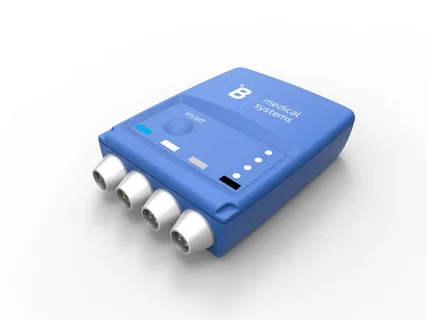Pharmaceuticals are essential for the treatment and prevention of various diseases. They are designed to relieve specific symptoms, cure infections, and improve overall health. However, ensuring that these drugs maintain their efficacy requires proper handling and storage throughout their lifespan.
One of the most significant challenges facing the pharmaceutical industry is monitoring temperature fluctuations during storage and transportation. Fluctuations in temperature can significantly impact the effectiveness of drugs, causing them to degrade faster than expected or lose their potency entirely.
Let’s read the detail about temperature monitoring device and their importance;
Impacts of temperature fluctuations on Pharmaceuticals
Pharmaceutical products are formulated to provide specific therapeutic effects, but their efficacy can be compromised if they are exposed to temperature fluctuations. Temperature variations can cause chemical reactions within pharmaceutical products, leading to changes in their molecular structure, potency and effectiveness. This is particularly true for temperature-sensitive drugs such as vaccines and insulin.A rise in temperature can lead to an increase in the rate of chemical reactions within the pharmaceutical product, which can cause degradation of active ingredients.
On the other hand, a decrease in temperature can cause crystallisation or precipitation of components inside the drug vial or container. Both these scenarios result in a loss of efficacy and pose significant risks to patient safety.
The impact of temperature fluctuations on pharmaceuticals is not limited to storage and transportation; it also plays a critical role during manufacturing processes. High temperatures can affect drug formulations as well as lead to changes in the viscosity or solubility of certain components, which may alter drug-release profiles. As such, it is crucial that temperature monitoring device be put into place across all aspects of pharmaceutical production, storage and transportation to ensure product quality and safety.
Importance of proper temperature monitoring systems
To ensure the quality and safety of pharmaceutical products, proper temperature monitoring systems are of utmost importance. Temperature fluctuations can affect drug potency, stability, and shelf life, rendering them ineffective or even harmful to patients. This is particularly crucial for sensitive biologic products that require strict temperature control during storage and transportation.Having an effective temperature monitoring system can help prevent costly losses due to spoiled products or recalls caused by compromised medications. It also helps pharmaceutical companies comply with regulatory requirements such as Good Manufacturing Practices (GMP) and Good Distribution Practices (GDP). Moreover, it safeguards patients’ health by ensuring that they receive safe and effective medications.
Choosing the right temperature monitoring device can be challenging because there are different types of sensors, data loggers, and software available in the market. Factors to consider include accuracy, precision, reliability, ease of use, scalability, and compliance with industry standards.
Factors to consider when selecting a temperature monitoring system
When selecting a temperature monitoring device for pharmaceuticals, there are several factors to consider. One of the most critical factors is accuracy. The system should be able to provide highly accurate readings at all times, ensuring that the medications are being stored at appropriate temperatures.
Another key factor to consider is reliability. The monitoring system should be able to consistently monitor and record temperatures, without any interruptions or malfunctions. It’s also important to choose a system with a long battery life and backup power options, so that it can continue operating even during power outages.
Finally, ease of use is an essential consideration for any temperature monitoring system. The system should be easy to set up and operate, with clear instructions and user-friendly interfaces. This will help ensure that staff members can quickly and easily access the information they need about medication storage temperatures.
Conclusion
In conclusion, temperature fluctuations can have a significant impact on pharmaceutical products. From the manufacturing process to storage and transportation, maintaining the correct temperature is crucial to ensure the integrity of the products. It is vital that pharmaceutical companies prioritise the implementation of these temperature monitoring device to comply with regulatory standards and maintain the quality of their products.

